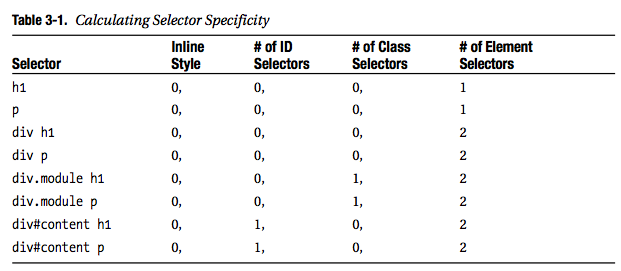CSS Basics
Collection of CSS basic rules for references
CSS Scoring

CSS Styles
General Styles
[selector] {
[property]: [value];
[<--declaration--->]
}
.foo, .foo--bar,
.baz {
display: block;
background-color: green;
color: red;
}
Indentation CSS follow HTML DOM Structure
.foo { }
.foo__bar { }
.foo__baz { }
Alignment
.foo {
-webkit-border-radius: 3px;
-moz-border-radius: 3px;
border-radius: 3px;
}
.bar {
position: absolute;
top: 0;
right: 0;
bottom: 0;
left: 0;
margin-right: -10px;
margin-left: -10px;
padding-right: 10px;
padding-left: 10px;
}
Meaningful white spaces
- One (1) empty line between closely related rulesets.
- Two (2) empty lines between loosely related rulesets.
- Five (5) empty lines between entirely new sections.
/*------------------------------------*\
#FOO
\*------------------------------------*/
.foo { }
.foo__bar { }
.foo--baz { }
/*------------------------------------*\
#BAR
\*------------------------------------*/
.bar { }
.bar__baz { }
.bar__foo { }
Object Extension Pointer
/**
* Extend `.btn {}` in _components.buttons.scss.
*/
.btn { }
/**
* In theme file
* These rules extend `.btn {}` in _objects.buttons.scss.
*/
.btn--positive { }
.btn--negative { }
Naming Conventions
- what type of thing a class does;
- where a class can be used;
- what (else) a class might be related to.
JS Hooks
<input type="submit" class="btn js-btn" value="Follow" />
General rules
- Select what you want explicitly, rather than relying on circumstance or coincidence. Good Selector Intent will rein in the reach and leak of your styles.
- Write selectors for reusability, so that you can work more efficiently and reduce waste and repetition.
- Do not nest selectors unnecessarily, because this will increase specificity and affect where else you can use your styles.
- Do not qualify selectors unnecessarily, as this will impact the number of different elements you can apply styles to.
- Keep selectors as short as possible, in order to keep specificity down and performance up.
Written on July 19, 2017